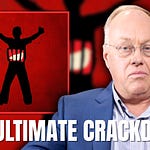Welcome to the Chris Hedges Report. The United States has 25 percent of the world’s prison population, some 2.3 million people, most of whom are poor, although it represents less than 5 percent of the global population. Its prisons are notorious for their violence, overcrowding and human rights abuses, including the widespread use of solitary confinement. But what is often not examined is what happens to those released from prisons into a society where they face legalized discrimination imposed by numerous laws, rules and policies that result in permanent marginalization, thrust into a criminal caste system. These former prisoners are often denied the right to vote, can lose their passports, are barred from receiving public assistance, including housing, and blocked from a variety of jobs. They must often repay exorbitant fines, abide by arbitrary rules imposed by probation officers, and avoid committing even minor criminal offenses if they go back to prison. The hurdles placed before them are momentous and help explain why within five years a staggering 76 percent return to prison. Today, in the first for a two-part series called The Long Road Home, we look at what happens to those in the United States who leave prison and struggle to reenter society through the eyes of five former prisoners, all of whom I taught in the college degree program offered by Rutgers University in the New Jersey prison system, who collectively spent 119 years in prison.
The Chris Hedges Report Podast: The Long Road Home, Part 1
This episode is the first of a two-part series called The Long Road Home, looking at the hurdles placed before those those who leave prison and struggle to reenter society.
Jun 01, 2022











